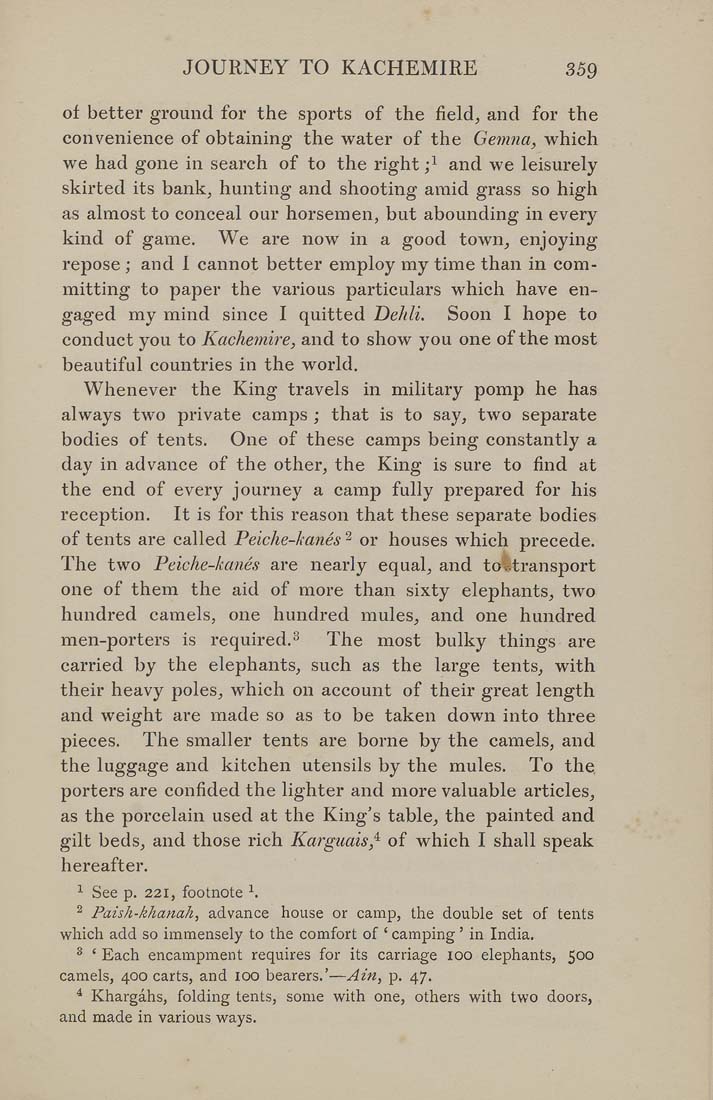JOURNEY TO KACHEMIRE 359
of better ground for the sports of the field, and for the
convenience of obtaining the water of the Gemna, which
we had gone in search of to the right;! and we leisurely
skirted its bank, hunting and shooting amid grass so high
as almost to conceal our horsemen, but abounding in every
kind of game. We are now in a good town, enjoying
repose; and I cannot better employ my time than in com¬
mitting to paper the various particulars which have en¬
gaged my mind since I quitted Dehli. Soon I hope to
conduct you to Kachemire, and to show you one of the most
beautiful countries in the world.
Whenever the King travels in military pomp he has
always two private camps ; that is to say, two separate
bodies of tents. One of these camps being constantly a
day in advance of the other, the King is sure to find at
the end of every journey a camp fully prepared for his
reception. It is for this reason that these separate bodies
of tents are called Peiche-kanes 2 or houses which precede.
The two Peiche-kanes are nearly equal, and to'r.transport
one of them the aid of more than sixty elephants, two
hundred camels, one hundred mules, and one hundred
men-porters is required.^ The most bulky things are
carried by the elephants, such as the large tents, with
their heavy poles, which on account of their great length
and weight are made so as to be taken down into three
pieces. The smaller tents are borne by the camels, and
the luggage and kitchen utensils by the mules. To the
porters are confided the lighter and more valuable articles,
as the porcelain used at the King's table, the painted and
gilt beds, and those rich Karguais} of which I shall speak
hereafter.
! See p. 221, footnote ^.
^ Paish-khanah, advance house or camp, the double set of tents
which add so immensely to the comfort of ' camping' in India.
^ ' Each encampment requires for its carriage 100 elephants, 500
camels, 400 carts, and 100 bearers.'—Ain, p. 47.
^ Khargahs, folding tents, some with one, others with two doors,
and made in various ways.
|








